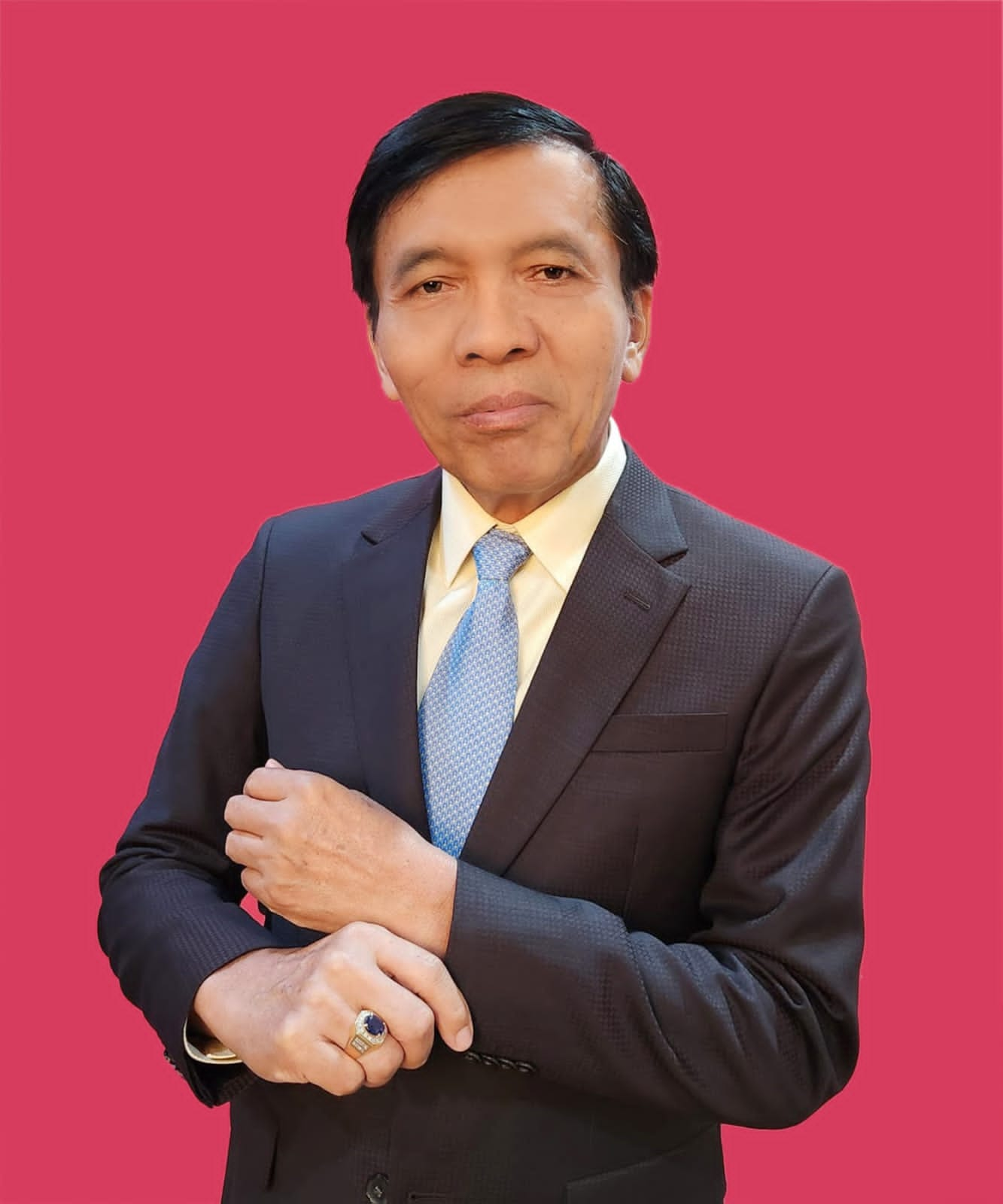Donald Trump’s energy policies demonstrate that fossil energy still plays a vital role in global geopolitical strategies. The U.S. exploits its fossil energy advantage to challenge China’s dominance in clean energy while reinforcing its position as a leading global energy exporter.

By: Dr. Sampe L. Purba
The fossil energy policies of Donald Trump, the United States’ President-Elect from the Republican Party, who is making a comeback and will return to the White House in January 2025, have sparked controversy in global energy politics. While the world is busy pursuing net zero emissions through various forums, seminars, and conferences under the sacred banner of Energy Transition and Climate Change, Trump is taking a different path. Emphasizing “Energy Dominance,” Trump not only prioritizes domestic fossil energy exploration but also uses it as a geopolitical tool to strengthen the United States’ position on the global stage. This approach aims to counter China (the People’s Republic of China), which excels in mastering clean technology processing based on critical minerals, while sending a clear signal to adversaries and allies in the global economic battleground.
IEA, Net Zero Emission, and Criticism of the European Union
The International Energy Agency (IEA) was established in 1974 as a response to the global oil crisis triggered by the Arab oil embargo. Its primary objective at the time was to ensure energy availability for developed nations while counterbalancing OPEC’s power, which had used oil as a geopolitical weapon. However, in recent decades, the IEA has transitioned into an active promoter of non-fossil energy and net zero emissions, aligning closely with the European Union’s agenda.
Donald Trump has expressed disappointment with the European Union’s approach, accusing it of co-opting the IEA to further its energy transition goals. In Trump’s view, fossil energy remains the cornerstone of global energy security. The United States’ withdrawal from the Paris Agreement in 2017 symbolized his resistance to energy transition policies that he believed would harm the domestic economy and America’s international competitiveness.
Fossil Energy as a Geostrategic Key: A grandmaster’s move by Donald Trump
In the realm of energy, geostrategy plays a crucial role, particularly in managing fossil energy reserves, ensuring energy supply security, and competing in the global energy transition. Strategic decisions regarding technological control, natural resource management, and energy alliances can serve as powerful tools to strengthen a nation’s geopolitical position.
Trump’s choice to focus on fossil energy exemplifies a brilliant geostrategic approach. Over the past 15 years, the United States has emerged as a global leader in fossil energy production, thanks largely to fracking technology that enabled the massive exploitation of shale gas and shale oil. Today, the U.S. is the world’s largest oil producer, with an output of around 12 million barrels per day, surpassing Russia and Saudi Arabia. In the LNG market, U.S. exports have reached 100 million tons annually, making it a major global player.
At the same time, the U.S. faces significant challenges from China, which dominates critical mineral technology and downstream processing, including lithium, nickel, and cobalt. China controls 70% of global lithium processing and 40% of cobalt production, establishing itself as a dominant force in the renewable energy supply chain. By maximizing fossil energy potential, Trump seeks to counter this dominance.
Through fossil energy, the U.S. wields a tool to reduce global dependence on Chinese technology and compel other nations, particularly in Europe and Asia, to rely more on American energy exports. This policy not only creates domestic jobs but also provides a strong leverage in international diplomacy.
Sicilian Chess Moves: Trump’s Strategic Gambit
Trump’s model can be likened to the Sicilian Defense with a Gambit element in chess—aggressive, tactical, but also calculated in its strategic risks.
- Sicilian Vendetta Move: Trump maximizes U.S. advantages in fossil energy, particularly shale gas and shale oil, as a proactive measure to challenge China’s dominance in renewable energy. In chess, the Sicilian opening is often used to seize control of the game’s center unconventionally and challenge the opponent’s position. Similarly, Trump’s move against the global trend of energy transition positions fossil energy as an economic and geopolitical weapon.
- The Gambit Sacrifice: Trump’s strategy also incorporates elements of sacrifice or compromise, such as withdrawing from the Paris Agreement, which isolated the U.S. in climate diplomacy. However, this “gambit” yields long-term strategic benefits: focusing on fossil energy dominance to sustain and strengthen America’s global position.
- Measured and Tactical Risk Management: Like in chess, this style is effective against opponents who are unprepared or overly reliant on standard approaches (e.g., China’s focus on critical mineral downstream dominance). Risks remain, including domestic reactions to environmentally unfriendly policies and future economic challenges as renewable energy becomes more affordable.
This approach reflects Trump’s deep understanding of America’s position on the global energy map, leveraging it to apply pressure on adversaries while safeguarding national interests. It is an aggressive chess move with a long-term vision to control the global energy board.
The two faces of Trump: Between Chris Wright and Elon Musk
Trump’s appointment of Chris Wright, a pro-fossil energy figure, as Secretary of Energy underscores his commitment to maximizing traditional energy exploration. At the same time, Trump also strategically accommodates innovation by engaging Elon Musk, Tesla’s founder and a proponent of clean energy. This dual approach demonstrates Trump’s flexibility in fostering energy innovation without entirely abandoning fossil fuels. As a former corporate executive, Trump remains a shrewd politician.
The impact of Trump’s policies on Indonesia
- Key Partners still favoring fossil energy.
China and India, Indonesia’s primary partners, remain heavily reliant on fossil energy. These two countries are not only the largest markets for Indonesian coal but also adopt a more realistic approach to energy transition.
- Temptations for downstream industry:
With high global demand for fossil energy, Indonesia may be tempted to prioritize raw material exports over domestic downstream development. While this offers short-term benefits, it could weaken efforts to create domestic value-added industries.
- Realistic strength in fossil energy:
While the world moves toward renewable energy, Indonesia must be realistic about its strengths in fossil energy. With abundant coal and natural gas reserves, coupled with competitive prices, fossil energy remains the backbone of national electricity and industrial sectors. Energy transition is essential but should not compromise existing energy stability. National interest must take precedence over merely projecting a favorable international image.
Key lesson: Prioritizing energy security
A central message from Trump’s policies is the importance of prioritizing energy security. For Indonesia, this means ensuring:
- Availability: Adequate energy supply to meet domestic needs and support economic growth.
- Reliability: Robust energy infrastructure to guarantee stable supply.
- Affordability: Competitive energy prices for households and industrial sectors.
This approach does not disregard renewable energy but ensures a realistic and gradual transition without sacrificing the advantages of existing fossil energy resources.
Geostrategic approach in the context of fossil energy
Geostrategy involves leveraging geographical advantages, resources, and policies to secure a nation’s geopolitical position. Trump’s geostrategic approach is evident in his use of fossil energy as an economic and geopolitical diplomatic weapon.
This is not merely about resource management but also a strategy to neutralize China’s dominance in critical mineral technology and downstream processing. By leveraging its strengths in shale gas and shale oil, Trump ensures that fossil energy remains the foundation of America’s global power while countering rivals’ clean energy strategies.
For Indonesia, a geostrategic approach means positioning fossil energy as a core strength to maintain energy availability, affordability, and reliability while realistically advancing energy transition.
Conclusion: Strategy for the future
Donald Trump’s energy policies demonstrate that fossil energy still plays a vital role in global geopolitical strategies. The U.S. exploits its fossil energy advantage to challenge China’s dominance in clean energy while reinforcing its position as a leading global energy exporter.
For Indonesia, this lesson is relevant. With abundant fossil energy reserves, focusing on energy security must be a top priority. Indonesia must ensure a realistic energy transition while utilizing fossil resources as a foundation for economic stability.
Ultimately, the global geopolitical energy battle is not merely about choosing between fossil fuels and renewables. It is about how nations leverage their resources to secure sovereignty, stability, and competitiveness on the global stage. With President Prabowo’s seasoned leadership and Vice President Gibran’s youthful energy, Indonesia’s strategic steps in energy will reflect the vision of Golden Indonesia 2045.
Dr. Sampe L. Purba – Alumni of Universitas Pertahanan RI, Graduate of PPRA Lemhannas, Senior Advisor to the Minister of Energy and Mineral Resources (2019-2023).
